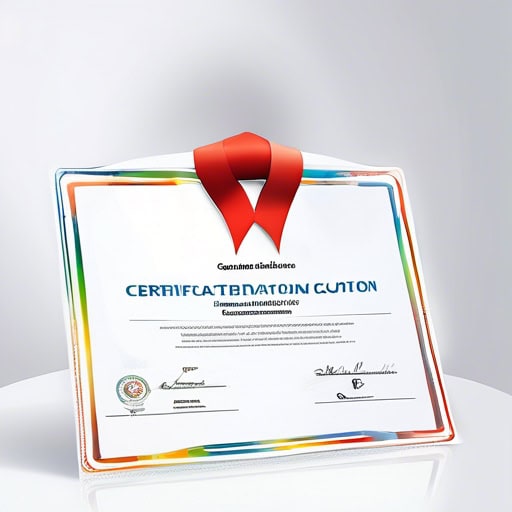On this page, you can expect to find a comprehensive list of vocabulary related to job interviews. There are various resources such as games, flashcards, and other tools to help you become familiar with the terminology used in this context. Explore the links provided to enhance your understanding and prepare for your next job interview with confidence.
Preparing for a job interview can be a nerve-wracking experience, but with the right strategies, you can increase your chances of success. Researching the company and the role you are interviewing for is crucial, as it shows your dedication and interest in the position. Practice common interview questions and be ready to discuss your skills and experiences in a clear and concise manner. Dress professionally, arrive early, and maintain good eye contact to make a positive impression. Remember to follow up with a thank you email to express your gratitude for the opportunity to interview. By following these steps, you can set yourself up for a successful job interview.
Practice & Reinforce Your Learning
Job Interview Vocabulary List
Skills

- During the job interview, the hiring manager emphasized the importance of strong communication skills in the workplace.
- The candidate demonstrated excellent communication abilities by articulating their thoughts clearly and concisely.
- Effective communication is essential for collaborating with team members, clients, and stakeholders in a professional setting.

- Her strong adaptability allowed her to excel in a fast-paced work environment with constantly changing priorities.
- The candidate's adaptability was evident during the interview when she shared examples of successfully navigating unexpected challenges in previous roles.
- The team's collective adaptability was crucial in meeting tight deadlines and overcoming obstacles in the project.

- I struggle with time management, often getting distracted and not completing tasks on time.
- Effective time management is essential for success in both personal and professional endeavors.
- By practicing good time management, I am able to balance my work and personal life more effectively.

- Teamwork is essential for success in our project, as we all need to work together towards a common goal.
- Effective teamwork requires open communication and mutual respect among team members.
- By fostering a culture of teamwork, our team was able to overcome challenges and achieve great results.

- She was praised for her exceptional problem-solving skills when she successfully resolved a major issue with the company's IT system.
- The team's problem-solving abilities were put to the test when faced with a sudden drop in sales.
- Effective problem-solving is a crucial skill for managers to possess in order to navigate challenges and drive business success.

- In my previous role, I was responsible for demonstrating strong leadership skills by effectively managing a team of diverse individuals to achieve project milestones.
- I believe that effective leadership is crucial in fostering a positive work environment and driving team success.
- I have taken multiple courses and workshops on leadership development to continuously improve my skills in motivating and guiding others towards success.

- His high level of emotional intelligence helped him navigate through difficult conversations with ease.
- The workshop focused on developing participants' emotional intelligence through various exercises and activities.
- Having emotional intelligence is just as important as having technical skills in a professional setting.
Education

- I believe that education is the key to unlocking opportunities and achieving success in life.
- Access to quality education should be a fundamental right for all individuals, regardless of their background or socioeconomic status.
- Investing in education is crucial for building a skilled workforce and fostering innovation and growth in society.

- The company provides ongoing training to ensure all employees are equipped with the necessary skills for their roles.
- Students participated in a hands-on training session to learn how to operate the machinery safely.
- The training program includes both classroom instruction and practical exercises to enhance learning retention.

- She attended a workshop on classroom management as part of her professional development.
- The school district offers various resources for teachers to engage in ongoing professional development.
- Continuing professional development is essential for educators to stay current in their field.

- She applied for the leadership training program to help her achieve career advancement within the school district.
- After completing her master's degree, she saw a significant increase in career advancement opportunities.
- Professional development workshops are essential for educators seeking career advancement in the education field.

- She proudly displayed her certifications on the wall of her office, showcasing her expertise in various areas.
- Obtaining certifications in project management and cybersecurity helped boost his career.
- The company required all employees to have certifications in first aid and CPR for safety reasons.

- She completed a job readiness program that helped her develop essential skills for securing employment.
- The company offers workshops on job readiness to help employees advance in their careers.
- His job readiness assessment revealed areas where he needed to improve in order to be competitive in the job market.

- Sarah's dedication and hard work have contributed to her workplace success in education, earning her recognition from her colleagues and supervisors.
- The principal's leadership skills and ability to effectively communicate with staff have been key factors in his workplace success in education.
- Continuous professional development and a positive attitude are essential for achieving workplace success in education.
Strengths and Weaknesses

- My manager provided me with constructive feedback about my areas for improvement during our performance review.
- I have identified several areas for improvement, such as public speaking and time management skills, that I plan to work on.
- The training program will focus on developing employees' areas for improvement to help them reach their full potential.

- She always knew she had a knack for music, and her talents as a singer and songwriter allowed her to pursue a successful career in the music industry.
- His natural talents in problem-solving and critical thinking made him the ideal candidate for the position of project manager.
- She was able to showcase her diverse talents in acting, dancing, and singing during the audition, impressing the casting directors and landing the lead role in the upcoming musical.

- She was aware of her limitations when it came to public speaking, so she made sure to practice and prepare thoroughly before any presentations.
- Despite his limitations in certain technical skills, he excelled in other areas, making him a valuable asset to the team.
- Recognizing and working within her limitations, she was able to set realistic goals and achieve success in her role.

- She has demonstrated excellent competencies in project management and problem-solving.
- The job description clearly outlines the required competencies for the position.
- Training programs are available to help employees develop new competencies.

- She was always honest about her weaknesses and sought help to improve in those areas.
- The manager encouraged the team to openly discuss their weaknesses and work together to overcome them.
- Identifying and addressing weaknesses is an important part of personal and professional growth.

- She highlighted her strengths in communication, leadership, and problem-solving during the job interview.
- His strengths in organization and attention to detail make him a valuable asset to the team.
- Identifying and leveraging your strengths is key to achieving success in your career.

- Her extensive experience in project management demonstrates her strong leadership capabilities.
- The candidate's technical capabilities include proficiency in various programming languages.
- The team is constantly developing their capabilities to stay ahead in the competitive market.
Work ethic

- She is known for her professionalism and attention to detail in all of her work tasks.
- The team's professionalism during the project impressed their clients and resulted in a successful outcome.
- It is important to exhibit professionalism when communicating with colleagues and clients in a professional setting.

- She prided herself on her efficiency at work, always finishing projects ahead of schedule.
- The new software system greatly improved the company's efficiency, streamlining processes and reducing errors.
- The manager emphasized the importance of efficiency in the workplace, encouraging employees to find ways to work smarter, not harder.

- She received a promotion due to her unwavering dedication to the company's mission.
- His dedication to his craft is evident in the high quality of his work.
- The team's success can be attributed to their collective dedication to achieving their goals.

- Her persistence in studying for the exam paid off when she passed with flying colors.
- Despite facing numerous rejections, his persistence in applying for jobs eventually led to a successful career.
- The athlete's persistence in training daily resulted in significant improvements in their performance.

- My boss commended me for my reliability in meeting project deadlines and consistently producing high-quality work.
- The company values employees who demonstrate reliability in their work ethic, as it ensures smooth operations and builds trust among clients.
- She was known for her reliability in handling important tasks and always being available to assist her team members when needed.

- She showed her commitment to the project by working late nights and weekends to ensure its success.
- His unwavering commitment to the company's mission has earned him respect and admiration from his colleagues.
- The team's shared commitment to excellence has resulted in a successful product launch ahead of schedule.

- She was praised for her diligence in completing all of her assignments on time and with high quality.
- His promotion was well-deserved due to his diligence in always going above and beyond in his work.
- The company's success can be attributed to the diligence of its employees in consistently striving for excellence.
Teamwork

- Our successful project outcome was a result of strong collaboration among team members from different departments.
- The collaboration between the marketing and sales teams led to a significant increase in customer engagement.
- The success of the event was a direct result of the collaboration between the event planners and the volunteers.

- Effective communication is key to successful teamwork.
- Clear and open communication helps to avoid misunderstandings.
- Regular communication among team members fosters collaboration and enhances productivity.

- Our project was successful because of the strong cooperation among team members.
- Cooperation is essential for achieving efficiency and productivity in the workplace.
- The key to a harmonious work environment is open communication and cooperation among colleagues.

- I will always support my team members by providing guidance and encouragement during challenging times.
- The team leader plays a crucial role in offering support to team members by ensuring they have the necessary resources to succeed.
- Effective communication is key in building a strong support system within a team, as it fosters collaboration and trust among members.

- The synergy between the marketing and sales teams was evident in the successful launch of the new product.
- Collaboration and communication were key factors in achieving such a high level of synergy.
- The synergy created by the diverse skill sets of our team members helped us exceed our project goals.

- I trust my team members to complete their tasks on time and with high quality.
- Building trust within the team is crucial for effective collaboration and communication.
- Without trust among team members, it is difficult to achieve shared goals and objectives.

- The team demonstrated great unity when they worked together to overcome a challenging project.
- Unity among colleagues is essential for a successful and productive work environment.
- The company promotes unity by organizing team-building activities and encouraging open communication among employees.
Quick Facts
- The average job interview lasts around 40 minutes
- Studies have shown that interviewers make a decision about a candidate within the first 90 seconds of meeting them
- 33% of bosses know whether or not they will hire someone within the first 90 seconds of an interview
- 70% of employers use social media to screen candidates before hiring
- One in five employers have asked an illegal question during a job interview
- 75% of hiring managers have caught a lie on a resume
- On average, 250 resumes are received for each corporate job opening
